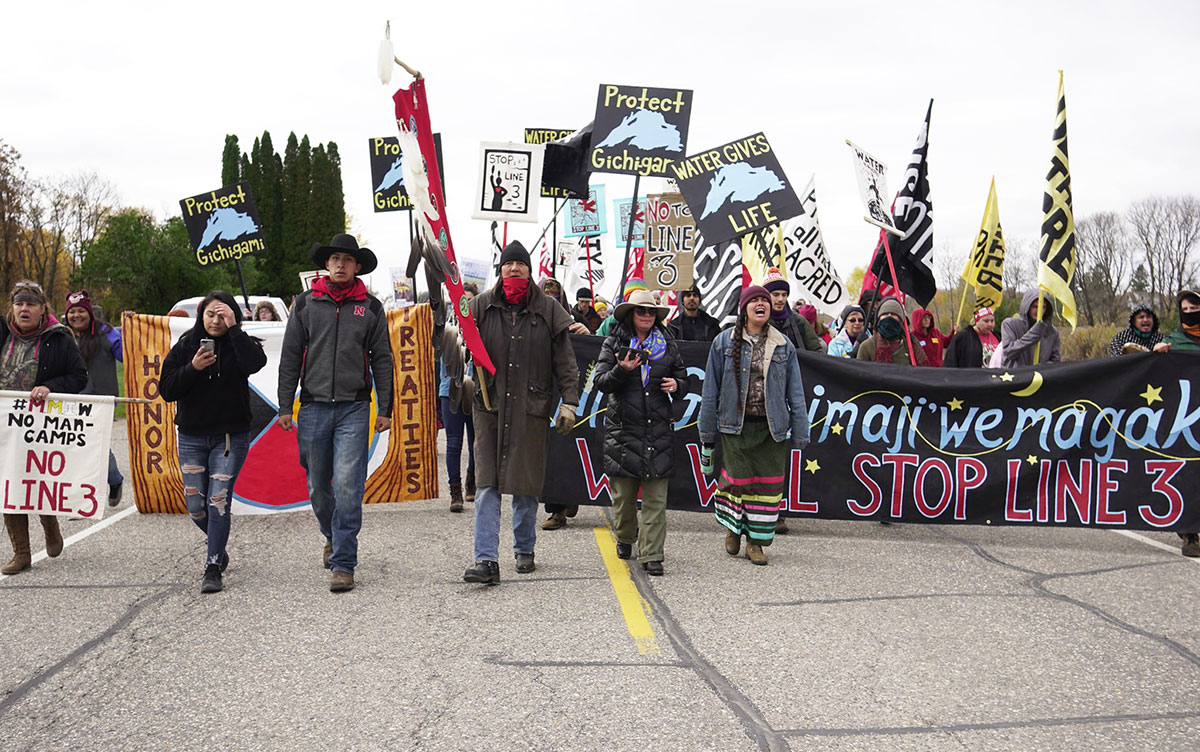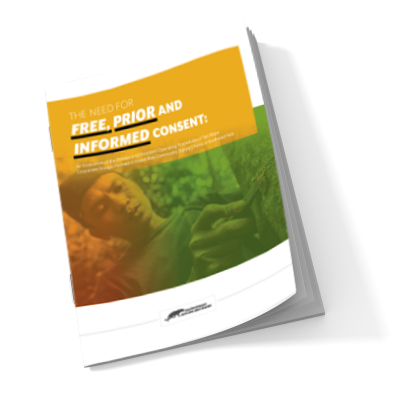Forest, water and land defenders are the world’s real-life heroes fighting for justice.
Though Indigenous people comprise just 5% of the world’s population, the lands they steward protect a staggering 80% of global biodiversity. Science and centuries of history show clearly that when it comes to keeping forests standing and maintaining ecological integrity against the overwhelming threats facing the natural world, the most effective, efficient and ethical approach is to uphold and defend Indigenous land rights to ancestral territory.
Indigenous peoples and local communities occupy 50% of the world’s land and manage large carbon stores. Securing their rights is essential to preventing catastrophic carbon emissions.
But while Indigenous peoples are disproportionately important to saving the world’s forests and averting climate catastrophe, they are also very often the most vulnerable themselves to exploitation and displacement related to the destructive activities of governments and corporate resource extraction. Hundreds of environmental defenders are killed by mercenaries and henchmen sent by governments and corporations each year and thousands of active conflicts between corporations and communities remain unresolved.
Across North America, many Indigenous Peoples’ are demanding that governments honor the laws, treaties and legal precedents that already explicitly protect their land rights. Like the Wet’suwet’en Nation fighting the Coastal Gaslink Pipeline, many are asserting their sovereignty in the courts and on the land, to stop fossil fuel companies from trespassing on their lands and bringing these destructive, poisonous pipelines.
Indigenous land rights are part of the solution to deforestation and the climate crisis.
From landgrabbing of Indigenous territories in Indonesia for palm oil to fossil fuel pipeline expansion projects in North America, to resistance fights against oil development in the Amazon, RAN partners with frontline Indigenous allies and supports locally led efforts to protect ancestral landscapes from industrial expansion.RAN works to support the efforts of governments to secure Indigenous Peoples’ and local communities’ legal rights to their land, and our campaigns pressure brands and banks to require their suppliers, investees and clients to prove full compliance with laws and regulations, and respect rights as outlined in UNDRIP, including Free, Prior, and Informed Consent.
UNDRIP expressly outlines Indigenous Peoples’ right to Free, Prior and Informed Consent (FPIC) — the right to give or withhold consent to any project that may affect them or their lands. This right is violated most often when corporate and government interests align to disregard Indigenous Peoples’ land rights and game the permitting process to obtain concessions for logging, oil extraction or industrial agriculture development. This is true around the world; much of the world’s fossil fuel development and industrial agriculture happens on “land grabs” — or large-scale leasing of land to corporations — which is often fueled by corruption.
Corporations and government must both be guided by Free, Prior and Informed Consent.
The basic right of Indigenous communities to be allowed to exercise Free, Prior and Informed Consent (FPIC) regarding decisions involving customary rights on traditional lands is a guiding principle for all of RAN’s campaigns and is a core part of our demands to corporate targets.RAN demands that our corporate targets understand and commit to a robust FPIC process that includes implementation that truly adheres to each of the following:
Prior: that it takes place prior to any development.
Informed: that it is based on sufficient information – information must be set out sufficiently clearly, including the right of each affected community to withhold consent and withdraw from the process.
Consent: that consent can be given or withheld by communities to any development on their lands, respecting communities’ culturally-preferred methods of negotiation and decision-making.
RAN’s work is also based on the Jemez Principles for Democratic Organizing. Only if basic human rights are upheld, social and racial justice can be achieved — and only if there is social justice, we will be able to durably protect and defend our land, forests, water, and air.
We must support Indigenous Peoples and local communities in their fight to gain legal rights to their land and ensure their ability to protect and manage it — sustaining their ways of life and safeguarding the vast majority of the world’s biodiversity from extinction. By supporting those that protect the forest, we can slow the worst impacts of deforestation and climate change.

